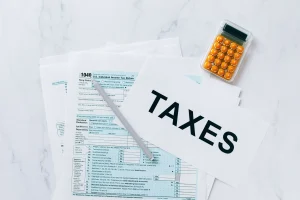
Taxation authorities are always searching for ways to increase compliance with their tax laws, particularly among the wealthy who often lessen their compliance when threatened by threats to their status and wealth.
However, cutting taxes or offering amnesties won’t solve this issue; rather, social influence should be leveraged as an effective solution.
Coercive Measures
An increase of about $80 billion over 10 years to the IRS budget could significantly enhance its enforcement capabilities and help curb tax evasion among high-income individuals, as well as tackle serious problems like abusive micro-captive insurance arrangements and syndicated conservation easement abuse that take advantage of illegitimate tax deductions.
More reporting from third parties to the IRS could also reduce evasion by enabling it to verify tax filings and identify discrepancies that remain uncorrected by audits. Congress would need to grant this authority while protecting taxpayer privacy with appropriate safeguards in place.
Reducing taxes in settings with limited enforcement capacity may have serious repercussions, including increasing bribe payments and diminishing government legitimacy. Research in Kananga demonstrated, however, that cutting property tax rates actually increased compliance and revenue collection; suggesting it’s important to combine coercive measures with legitimising policies when law enforcement capacities are limited.
Legitimacy-Based Measures
Legitimacy refers to a perception that an organization shares the values of the larger social system within which it operates. According to Dowling and Pfeffer, organizations seek legitimacy by showing they share congruency between their own values and those of stakeholders. This study sought to measure individual perceptions of pragmatic moral cognitive legitimacy dimensions in order to predict whether participants were willing to provide resources toward an effort aimed at increasing tax compliance.
Previous studies aimed at measuring perceived legitimacy have utilized proxy variables like reputation and trust as proxy measures of perceived legitimacy in an organization. In contrast, this research employed a 12-item scale directly measuring three dimensions of perceived legitimacy directly and found acceptable reliability (pragmatic a =.91; moral a =.86; cognitive a =.94). All three dimensions showed moderate to strong correlations among themselves as well as confirmatory factor analysis confirmed good model fit.
Public Marketing Campaigns
As our country faces an escalating tax gap that compromises both progressive taxation and government spending, new strategies must be devised to close it. Noncompliance stemming from various causes spanning different taxes and taxpayers must be reduced through various approaches; one such measure involves increasing third party information reporting to IRS to help decrease evasion while increasing compliance by those reporting their income voluntarily.
An additional approach would be to step up enforcement efforts directed at wealthy individuals and complex partnerships. High-income earners tend to obtain their income from untraceable sources like pass-through businesses and hidden offshore accounts; as such, IRS should intensify work on these issues – including developing guidance for defining large complex partnerships as well as case selection tools to avoid subjecting compliant taxpayers to unnecessary audits.
Finally, the IRS should continue educating taxpayers about emerging scams through research using revenue data, surveys, randomized evaluations and other data-driven approaches.
Social Influence
Reduce taxes while increasing enforcement is often effective in settings with weak tax enforcement capacity, like Kananga where researchers randomly assigned some property owners to have their tax rate reduced by 17 percent (9,616) 33 percent (9,4885 properties) or 50 percent (9,674) of their current rate. Utilizing administrative data on payments as well as surveys on self-reported experiences with collectors, the team found that lower rates and increased enforcement significantly increased compliance and revenue collection.
Investment in stronger and fairer tax enforcement can increase basic fairness for workers and honest taxpayers, such as providing high-quality taxpayer services and improving IRS capabilities and resources for more thorough audits of corporations and wealthy individuals. Redeploying resources can improve IRS contact and communication with millions of noncompliant taxpayers who wish to pay but are unable to reach it due to lack of funds or other priorities; additionally reinvesting in its infrastructure may also prove useful in strengthening justice at work.







